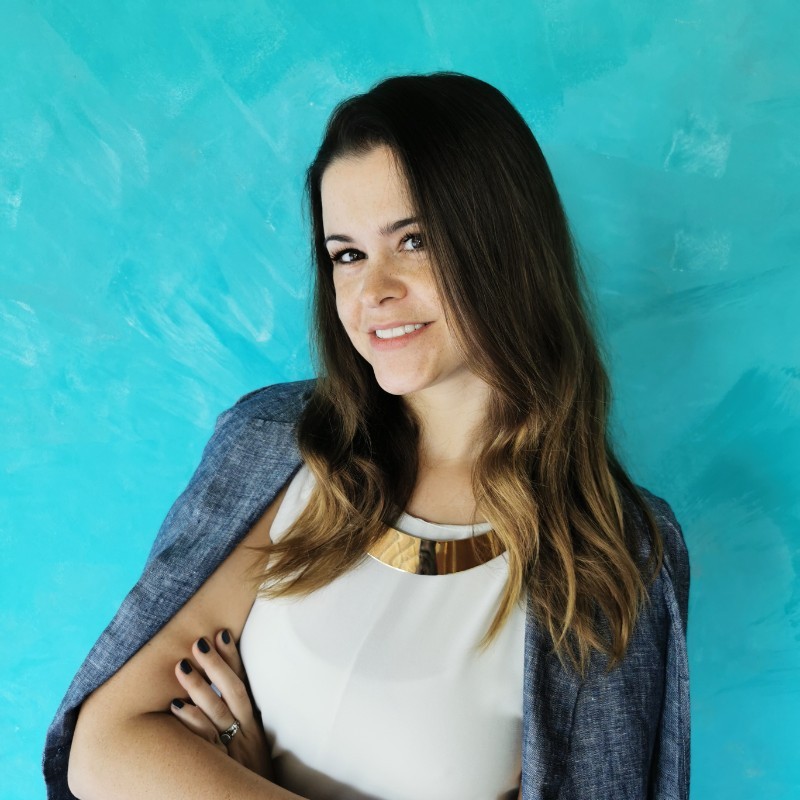As innovation ecosystems across the Middle East rapidly evolve, Astrolabs stands out as a key player connecting global startups with regional markets, with a strong focus on scalable sustainability solutions. In this exclusive interview with ESG MENA, Adela Alonso Alonso, Director of Open Innovation at Astrolabs, shares insights into how the company fosters impactful collaboration between countries and companies, the rigorous process behind selecting startups with real potential, and how cross-border partnerships are driving sustainable economic growth across the region.
Astrolabs plays a central role in connecting global innovation with regional opportunities. Could you start by explaining the company’s main areas of focus and how it drives open innovation across markets?
Essentially, I oversee our portfolio of open innovation and market entry programs. Our work focuses on supporting both co-creation and collaboration between countries and companies.
You’re hosting an event for Taiwan at North Star Dubai. What’s your strategy in terms of sustainability innovation?
We see ourselves as ecosystem enablers — bringing together the problem owners, the solution owners, and the supporters who can make things happen. When it comes to sustainability innovation, we aim to connect with solution providers capable of operating at scale. We’re not looking for the “nice-to-have” type of solutions, but rather for the ones that can make a real systemic impact.
Many startups in Dubai come seeking the lifestyle rather than business. How do you differentiate your approach?
That’s exactly what we want to avoid. Our focus is on supporting sectors that contribute to the national development agenda, particularly sustainability. Sustainability is crucial — we live in the desert, and survival depends on sustainable practices. We’re interested in making entire systems sustainable — from energy grids to industrial sectors. We target the complex and often “boring” challenges: making industries greener, logistics systems more efficient, and helping governments develop sustainable policies.
Globally, the startup success rate is only about 4–5%, and even lower in the Middle East. How do you help your startups beat those odds?
First, we don’t accept everyone. One of the main values we offer to partners like the Taiwan government is helping them identify startups that make sense for this market. We perform due diligence not once, but twice. Some solutions work well in East Asia but not necessarily in the Middle East. For example, in Taiwan there’s a labor shortage, so hyper-robotic solutions thrive — that’s not the case here.
How do you support these startups before they commit resources to the region?
We introduce them early to the local ecosystem before they decide to invest. Many assume the Middle East is the “land of milk and honey,” but we make sure they understand the market context. We connect them with ecosystem enablers, help them assess opportunities, and guide them in deciding whether they should enter this market immediately or grow elsewhere first.
Who usually initiates collaboration — Astrolabs or the international partners?
Typically, it begins with international partners. Countries like Taiwan or South Korea have strong innovation output but relatively small domestic markets. To grow, they need to expand abroad. The Middle East offers both a large market and a demand for the technologies it produces, making it an ideal match.
How do you assist startups with funding?
We don’t fund directly. Instead, we help them understand the local financing landscape and connect them with relevant ecosystem partners. Not every investor focuses on sustainability, but we know which ones do. For instance, VentureSouq has a sustainability mandate, so we facilitate those introductions. We also coach startups on relationship-building — in East Asia, business is discussed immediately, while here relationships come first. We help them navigate that cultural difference.
Do you also help them build partnerships?
Yes, partnerships are key. The best strategy is understanding what each side wants. We collaborate with both government and private entities in the region. While some might see them as competitors, we believe there’s always room for collaboration. For example, we’ve connected startups with Hub71 and other incubators, as well as entities like the Mohammed bin Rashid Innovation Fund and Shurooq Partners. We knew about some initiatives, like the AI fund launch, even before they were public, because we’re part of those ecosystem conversations.
Do you think the UAE’s startup ecosystem is solid and sustainable, or more of a supporting sector?
It’s definitely a key driver for the economy — a real dynamo. However, as in many parts of the world, there has been a bubble of poor-quality startups and incubators. That’s why due diligence is so important, not only on startups but also on clients. We don’t run accelerators just for the sake of it. Our goal is to make a real impact through quality and relevance.
Astrolabs has expanded in Saudi Arabia as well. How is that going?
We’ve been in Riyadh for several years, and our growth there has accelerated recently. We work extensively with the government — for example, we ran Saudi Arabia’s first gaming accelerator.
How do you assess the sustainability momentum in the Middle East following COP28, particularly in light of recent geopolitical challenges?
I believe the momentum remains strong. Compared to some more developed markets, the Middle East understands that climate sustainability is directly linked to financial sustainability.




